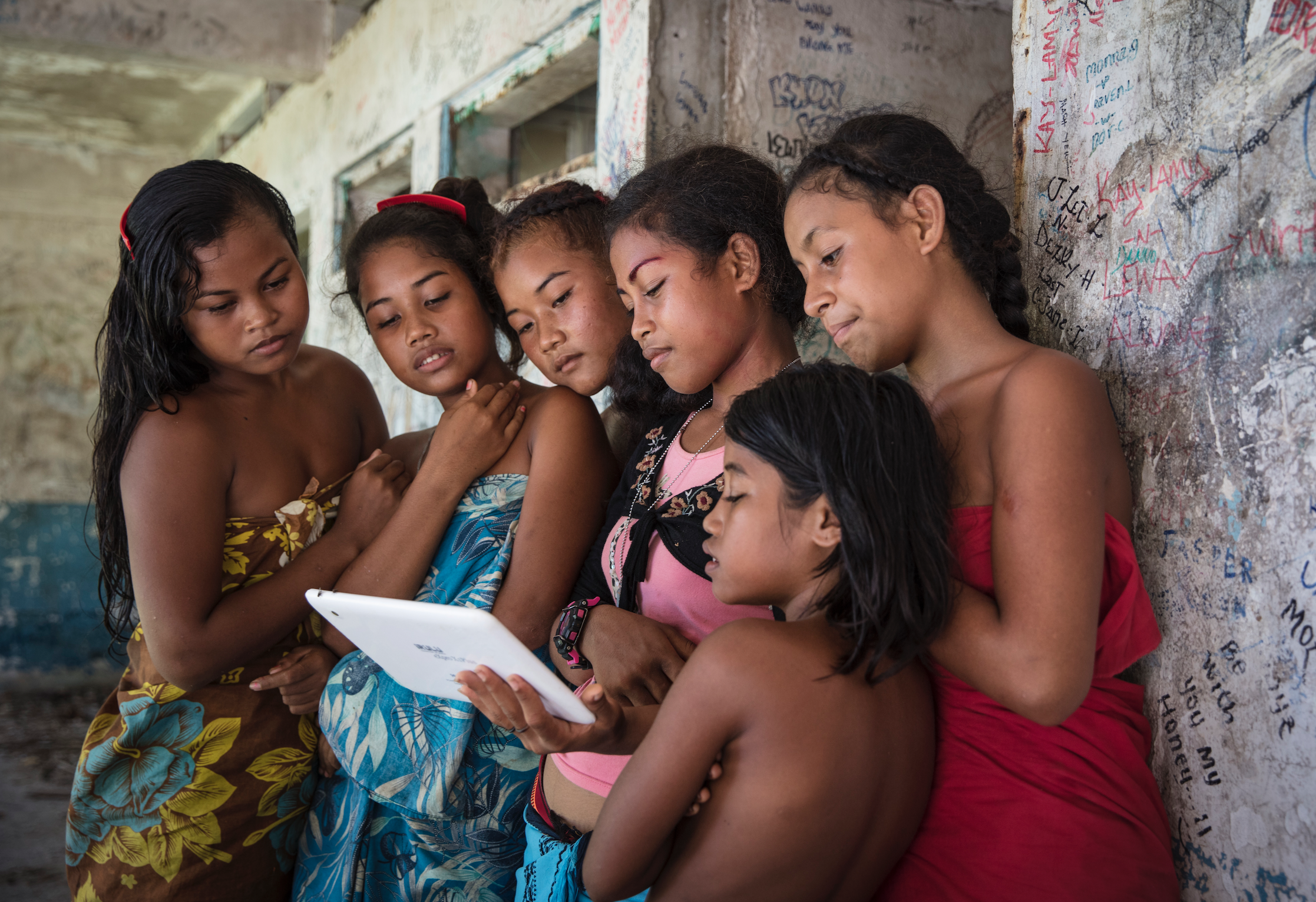
Our Approach
The traditional storytelling sessions for this work took place during One People One Reef and Bluecology’s 2018 Youth Action Project, where participants listened to the stories, then helped transcribe and translate them into English.
1. Meet with the LOCAL community on each island and identify storytellers
2. record traditional stories
3. TranscriBe/ Translate STORIES WITH INVOLVEMENT FROM Ulithian YOUth
4.Verify stories with storytellers
5. produce final audio and written deliverables
Transcriptions & Translations
NOTE ON THE ULITHIAN LANGUAGE TRANSCRIPTIONS
The text was transcribed directly from the audio recordings during the 2018 Youth Project by a team of Outer Island High School students on Falalop Island, Ulithi Atoll. Due to the nature of the Ulithian language, which has only recently developed a standardized written system, inconsistencies in the spelling of words is a natural occurrence. Formatting changes and edits were made to the original transcriptions for readability and clarity. The transcriptions have been verified with the storytellers to ensure any changes did not detract from the intended message.
NOTE ON THE ENGLISH TRANSLATIONS
The translations were an intergenerational collaborative effort between youth and older people who took part in the project. The language is intended to be clear and easy to understand for a young audience for whom English is a second language. However as a result of this, it does not preserve the playful use of sounds and repetition present in the original. In addition, the translated stories contain some additions by John Rulmal Jr (Magul) that either clarify or expand on the detail included by the storyteller. The translations have been verified with the original storytellers
Weaving Science into the Stories
The Bottomless Clamshell and accompanying science commentary combine elements from the Ulithian stories with lessons from the work of the One People One Reef science team. A 21st century Buuch and Repiy have an adventure with echoes from the tales of Filtey, Yolfad and Forbwaey, where they meet reef creatures that teach them lessons about coral reef science and threats to reefs. The story is also informed by the Pacific Worlds Ulithi project. The science commentary adds more detailed lessons to relevant points in the story, covering topics like the impact of spearfishing, plastic pollution, and invasive species on coral reefs, and the value of traditional management practices as understood from a scientific perspective.
Examples of traditional practices that we can support with scientific evidence:
A. On some islands, large grouper are reserved for high-ranking families, and only certain people can eat them. Grouper are relatively K-selected sequential hermaphrodites (sex changers), and the largest are sometimes females – critical for contributing large numbers of eggs during spawning. This taboo is backed up by what we know about the life history of grouper.
B. On many islands, reef closures follow the death of a leader or reef owner. Reefs are re-opened per a decision by the family involved. This results in rotating closures for varying time periods. This tradition is now well understood as a management tool in ‘modern’ management planning. Marine Protected Areas (MPAs) are effective in a number of ways, and rotating closures are a tool used in many management scenarios across the globe.
C. Mol igil bong : The first fish caught. Fishing rights belong to certain clans. They can open and close a fishing area. Mol igil bong is when someone from the clan (manager or owner) fishes, gets a good first catch of the season, and decides to open the area to fishing by the rest of his clan. When someone from outside of that clan is granted permission to fish there, they practice Fa’ad elbong (“string from the ibong”) – two fish strung with bellies together are given to the clan that owns the area (an elder of the clan). The practice, now not used as widely as it once was, ensures tenure over fishing grounds, and management oversight.
“ Conventional science can benefit from traditional knowledge.”
Giacomo bernardi | Fish Biologist

Ready to Help?
—
Support this project


